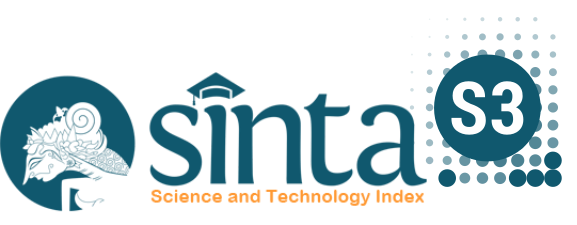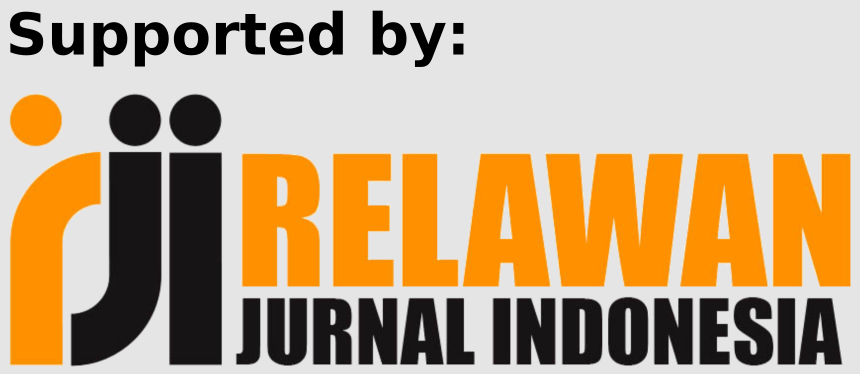Breastfeeding education training program for healthcare professionals: A narrative review
DOI:
https://doi.org/10.31101/jhtam.3538Abstract views 746 times
Keywords:
Breastfeeding Education, Healthcare Providers, Breastfeeding MothersAbstract
Downloads
References
Abbass-dick, J. et al. (2020) ‘The comparison of access to an eHealth resource to current practice on mother and co-parent teamwork and breastfeeding rates : A randomize d controlle d trial’, 90. doi:10.1016/j.midw.2020.102812.
Abdulahi M, Fretheim A, Argaw A, M.J. (2021) ‘Initiation and Exclusive Breastfeeding Practices and Infant Ethiopian Setting’, Nutrients, pp. 1–15.
Er, M. et al. (2016) ‘Moore ER et al. Early skin-to-skin contact formothers and their healthy newborn infants. Cochrane Database of Systematic Reviews 2016, Issue 11. Art. No.: CD003519. DOI: 10.1002/14651858.CD003519.pub4’, Cochrane Database of Systematic Reviews [Preprint], (11). doi:10.1002/14651858.CD003519.pub4.www.cochranelibrary.com.
Gresh, A. et al. (2019) ‘Caring for Women Experiencing Breast Engorgement: A Case Report’, Journal of Midwifery and Women’s Health, 64(6), pp. 763–768. doi:10.1111/jmwh.13011.
Hodnett, E.D. et al. (2013) ‘Continuous support for women during childbirth’, Cochrane Database of Systematic Reviews, 2013(7). doi:10.1002/14651858.CD003766.pub5.
Id, M.A. et al. (2021) ‘PLOS MEDICINE Evaluation of a community-based mobile video breastfeeding intervention in Khayelitsha , South Africa : The Philani MOVIE cluster-randomized controlled trial’, (November 2018), pp. 1–25. doi:10.1371/journal.pmed.1003744.
Janmohamed, A. et al. (2020) ‘The effects of community home visit and peer group nutrition intervention delivery platforms on nutrition outcomes in low and middle-income countries: A systematic review and meta-analysis’, Nutrients, 12(2). doi:10.3390/nu12020440.
Jebraeily, M., Fazlollahi, Z.Z. and Rahimi, B. (2017) ‘The most common smartphone applications used by medical students and barriers of using them’, Acta Informatica Medica, 25(4), pp. 232–235. doi:10.5455/aim.2017.25.232-235.
Journal et al. (2022) ‘Efficacy of a breastfeeding support education program for nurses and midwives : a randomized controlled trial.’, International Breastfeeding Journal, 2(1), pp. 1–13. Available at: https://doi.org/10.1186/s13006-022-00532-2.
Kajdy et al. (2020) ‘Risk factors for anxiety and depression among pregnant women during the COVID-19 pandemic: a web-based cross-sectional survey’, Medicine, 99(10), pp. 21–27.
Kimani-Murage, E.W. et al. (2017) ‘Effectiveness of home-based nutritional counselling and support on exclusive breastfeeding in urban poor settings in Nairobi: A cluster randomized controlled trial’, Globalization and Health, 13(1), pp. 1–16. doi:10.1186/s12992-017-0314-9.
Mastorakou, D. et al. (2019) ‘Sensory characteristics of human milk: Association between mothers’ diet and milk for bitter taste’, Journal of Dairy Science, 102(2), pp. 1116–1130. doi:10.3168/jds.2018-15339.
Mufdlilah, Johan and Fitriani (2018) ‘The Mother’s Perception in Giving Exclusive Breastmilk’, Journal of Midwifery Research Indonesia, 2(2), pp. 38–44. Available at: https://doi.org/10.32536/jrki.v2i1.23.
Reverri, E.J. et al. (2022) ‘Young Child Nutrition: Knowledge and Surveillance Gaps across the Spectrum of Feeding’, Nutrients, 14(15), pp. 1–10. doi:10.3390/nu14153093.
Seyyedi, Navisa et al. (2021) ‘Effectiveness of a smartphone-based educational intervention to improve breastfeeding’, pp. 1–8.
Shafaei, Mirghafourvand and Havizari (2020) ‘The effect of prenatal counseling on breastfeeding self-efficacy and frequency of breastfeeding problems in mothers with previous unsuccessful breastfeeding: A randomized controlled clinical trial.’, BMC Women’s Health, 20(1), pp. 1–10. Available at: https://doi.org/10.1186/s12905-020-00947-1.
Suryavanshi et al. (2020) ‘A mobile health-facilitated behavioural intervention for community health workers improves exclusive breastfeeding and early infant HIV diagnosis in India: a cluster randomized trial.’, Journal of the International AIDS Society, 23(7), pp. 1–19. Available at: https://doi.org/10.1002/jia2.25555.
Tewabe et al. (2016) ‘Exclusive breastfeeding practice and associated factors among mothers in Motta town, East Gojjam zone, Amhara Regional State, Ethiopia, 2015: A cross-sectional study’, International Breastfeeding Journal, 12(1), p. 12. Available at: https://doi.org/10.1186/s13006-017-0103-3.
Wallace, L.M. et al. (2018) ‘Nurse Education in Practice Educational videos for practitioners attending Baby Friendly Hospital Initiative workshops supporting breastfeeding positioning , attachment and hand expression skills : E ff ects on knowledge and con fi dence’, Nurse Education in Practice, 31(April), pp. 7–13. doi:10.1016/j.nepr.2018.04.005.
Wang, T., Shang, M. and Chow, K.M. (2023) ‘Effects of breastfeeding training programmes for midwives on breastfeeding outcomes: a systematic review and meta-analysis’, BMC Pregnancy and Childbirth, 23(1), pp. 1–18. doi:10.1186/s12884-023-05540-6.
World Health Organization Regional Office for the Eastern Mediterranean (2022) Exclusively breastfeed. Available at: http://www.emro.who.int/nutrition/breastfeeding/index.html.
Downloads
Published
How to Cite
Issue
Section
License
Copyright (c) 2024 Hanifatur Rosyidah, Muliatul Jannah , Sunah

This work is licensed under a Creative Commons Attribution-ShareAlike 4.0 International License.
Authors who publish with Journal of Health Technology Assessment in Midwifery agree to the following terms:
- Authors retain copyright and grant the journal right of first publication with the work simultaneously licensed under a Creative Commons Attribution License (CC BY-SA 4.0) that allows others to share the work with an acknowledgment of the work's authorship and initial publication in this journal.
- Authors are able to enter into separate, additional contractual arrangements for the non-exclusive distribution of the journal's published version of the work (e.g., post it to an institutional repository or publish it in a book), with an acknowledgment of its initial publication in this journal.
- Authors are permitted and encouraged to post their work online (e.g., in institutional repositories or on their website) prior to and during the submission process, as it can lead to productive exchanges, as well as earlier and greater citation of published work.

Journal of Health Technology Assessment in Midwifery is licensed under a Creative Commons Attribution-ShareAlike 4.0 International License..













